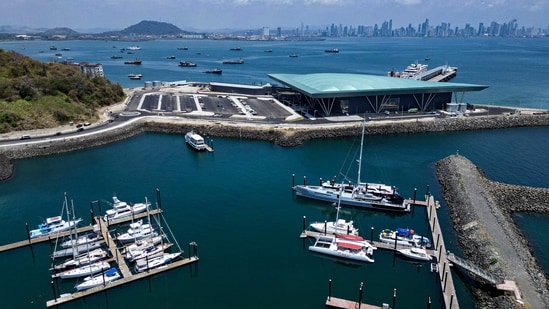Panama formally pulled out of China’s Belt and Road infrastructure programme, President Jose Raul Mulino announced on Thursday, in a development that comes amid increasing pressures by United States President Donald Trump’s administration to curtail the growing Chinese influence in the Panama Canal.
Panama’s president further stated that the country has already given the statutory notice of 90 days over its embassy to Beijing.
The notice indicates Panama’s decision not to renew its involvement in the ambitious Belt and Road Initiative (BRI).
Also Read | Donald Trump on taking Panama Canal: ‘Something very powerful going to happen’
China’s Belt and Road Initiative (BRI) is a strategic project of China, which seeks to connect Asia with Africa and Europe via land and maritime networks to enhance regional integration, increase trade, and stimulate economic growth.
The BRI comprises a Silk Road Economic Belt – a trans-continental passage that links China with Southeast Asia, South Asia, Central Asia, Russia and Europe by land.
Also Read | Rubio views a deportation flight in Panama as Trump prioritizes an immigration crackdown
This marks a significant shift in Panama’s foreign policy, as the BRI had been a key aspect of the country’s infrastructure development strategy under previous administrations.
Panama’s president denies making deal related to US shift
Earlier, Panamanian President José Raúl Mulino denied the US State Department’s claim that his country had reached a deal allowing US warships to transit the Panama Canal for free.
Mulino said he had told US Secretary of Defence Pete Hegseth on Wednesday that he could neither set the fees to transit the canal nor exempt anyone from them and that he was surprised by the US State Department’s statement suggesting otherwise late Wednesday.
Also Read | ‘Walked 45 kilometers through dangerous hills’: Indian caught at US border and deported
“I totally and absolutely reject that statement yesterday,” Mulino said during his weekly press conference, adding he instructed Panama’s ambassador in Washington to dispute the statement by the US State Department.
The US State Department “truly surprises me because they make an important institutional statement by an entity which conducts United States’ foreign policy within the powers of the president of the United States based on falsity. That is unacceptable.”
(With AFP inputs)


